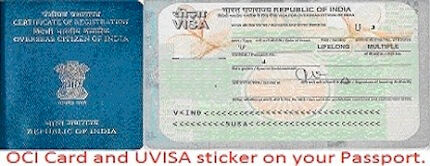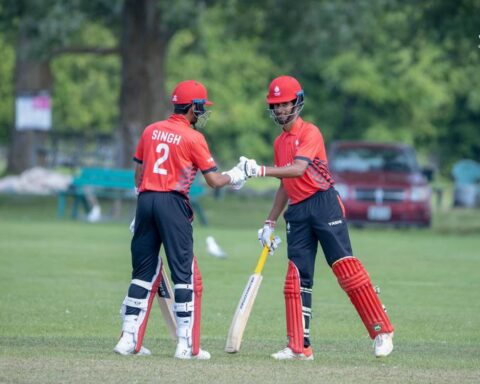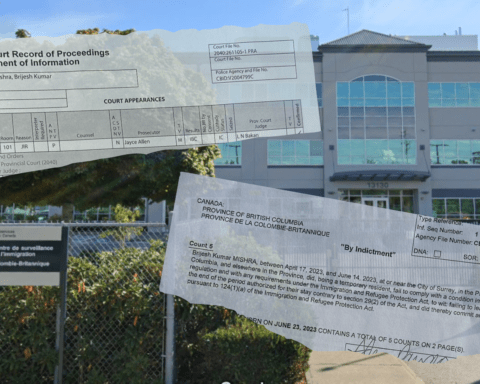Pulse takes a look at some stories that caught the attention of Canada’s Indian diaspora community. From cricket fever to the ethnic vote, here is a round up of the top five headlines coming from ethnic media outlets this quarter.
 The Power of the Ethnic Vote
The Power of the Ethnic Vote
No party can afford to overlook the power of the ethnic vote. A perfect example: the NDP’s recent nomination of Farheen Khan (pictured to the right) as their federal candidate for Mississauga Centre. While demonstrating their diversity and support for the Muslim community and women all in one move, the NDP also took aim at Prime Minister Harper, who has come under fire for his seemingly disparaging remarks about Muslims.
As the Forum Poll carried in the Indo-Canadian Voice pointed out, the controversy over banning the niqab during Canadian citizenship ceremonies has clearly not helped the Conservatives — even though there are many who may agree with them.
In the Weekly Voice report, Khan is clear about the objective. “It is so important that at a time of heightened tensions amongst various cultures, we unite together and show the rest of world that Canada will not be phased by fear,” she explains. “We will show the Harper Conservatives that we can have a safer Canada without trading in our individual freedoms.” Many community newspapers, including South Asian Focus, have covered the news of her nomination. But, as Can-India News rightly points out, perhaps one should not be so concerned about what is on her head (the hijab), as what is in it.
According to Sikh Press — which also published a photo of Khan with Jagmeet Singh, NDP’s Sikh MPP for Bramalea-Gore-Malton — the political candidate is hurt, but undeterred by the, “[N]egative comments from individuals telling her to take off her scarf if she wanted to make it to Ottawa.” But considering there are many who wear a hijab in her constituency, it might be worth noting that long-time NDP members who attended the event said, “It was the largest NDP nomination meeting in Mississauga that they had seen.”
 Lifelong Visa on OCI Card
Lifelong Visa on OCI Card
The announcement of a lifelong visa on the OCI (Overseas Citizenship of India) card is a major win for the Indian diaspora who travel to India often, sometimes on short notice due to emergencies like an illness or death in the family. Dr. Azad Kaushik, a member of The Overseas Friends of BJP (OFBJP), who pushed for the changes according to an article in the Weekly Voice, states that, “[F]rom now, the OCI card will be the entry and exit document for India, though you are required to carry the Canadian passport as well.”
[M]any in the community were upset when Canada was denied visa-on-arrival privileges last year, and the OFBJP had pledged to take up the matter at that time.
Not being delayed by visa application formalities and the complex system that can have travellers going back and forth more than once has the community sighing with relief. It was what Indian Prime Minister Narendra Modi promised during his visit to the United States: a simpler system.
As Can-India News reported, many in the community were upset when Canada was denied visa-on-arrival privileges last year, and the OFBJP had pledged to take up the matter at that time.
 Do We Need a Radicalization Tip Line?
Do We Need a Radicalization Tip Line?
Can-India News asks: Will a radicalization tip line be the solution to preventing acts of terror? With jihad being romanticized and idolized, many who have been pushed to the fringes of society are turning to radicalized groups for a sense of belonging and renewed purpose, or as a form of revenge for being left out.
A tip line that allows Canadians to provide critical information without revealing the identity of the informer might reduce terror-related incidents — and a dedicated one for radicalization will no doubt speed up intervention.
Are these radicals protected by filial or community loyalty — or is it out of a fear of being targeted, as the editorial in the Bharat Times suggests? Jayant Gala says there are moderate Muslims who do not agree with the extremists that have drowned the voice of reason with their loud rhetoric. The moderates may know who these extremists are, but are afraid to reveal their identities because of perceived repercussions to them or their families.
A tip line that allows Canadians to provide critical information without revealing the identity of the informer might reduce terror-related incidents — and a dedicated one for radicalization will no doubt speed up intervention.
Cricket Fever
Cricket is to India what hockey is to Canada, and what soccer is to Europe and Latin America. While Indians might enjoy many other sports, it’s cricket that helps bond the country’s citizens together no matter where they are in the world. The Weekly Voice’s headline says it best: “For Indian cricket fans, heart rules over the head.”
As India blasts its way to the finishing line in the hope of retaining the World Cup, all eyes are on Australia and New Zealand where the tournament is being played.
Pakistan is the opponent that really drives up the excitement. Any game the two countries play is like the finals. That’s why the first World Cup game between the archrivals was screened free in many parts of the Greater Toronto Area. As India blasts its way to the finishing line in the hope of retaining the World Cup, all eyes are on Australia and New Zealand where the tournament is being played. While India is set to take home the Cup again, no matter what team it plays, many feel an India-Pakistan game would be the perfect finish.
 Man Sues Canada for Wrongful Conviction
Man Sues Canada for Wrongful Conviction
“Miscarriage of justice” — that’s what a B.C. Criminal Justice Branch investigation (in 2013) deemed a ruling that turned the life of a falsely accused Indo-Canadian man named Gurdev Singh Dhillon upside down.
A report in the Weekly Voice, which was carried by several media outlets in India including the Times of India and NDTV, indicates he is filing a suit against two RCMP personnel, Crown prosecutor Don Wilson and his former defence lawyer Sukhjinder Grewal for the wrongful conviction.
The 36-year-old Surrey resident was found guilty of sexual assault in 2005 and extradited to India upon his release from prison in 2008. The conviction was made on the basis of the victim’s testimony, which placed Dhillon as one of the three men at the scene of the crime. DNA evidence later revealed the other two were responsible.
In the meantime, Dhillon’s marriage and family broke up, and he was stripped of his Canadian permanent residency status.




